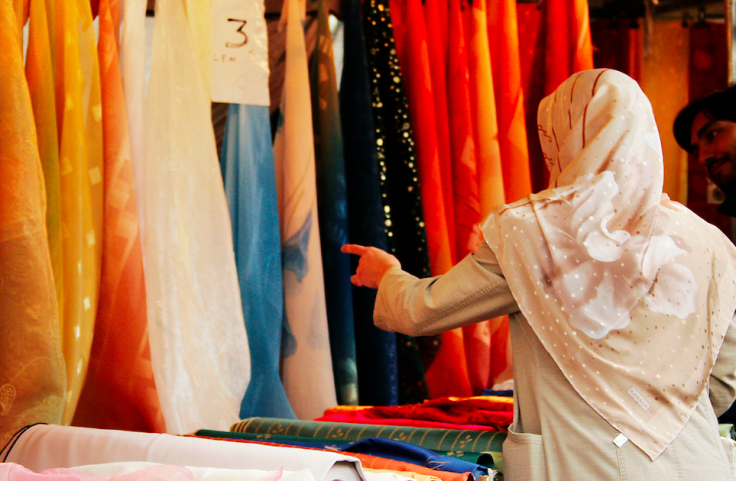If you are truly worried about empowering Muslim women, leave their veils alone and employ them
EU court announced employers can ban workers from wearing religious symbols.

The dialogue over Muslim women's clothes has stopped evoking serious conversation and is now bordering on the ridiculous.
As someone who "veils" (the body, not the face), I have lost count of the debates and discussions I have been part of over the last decade. It is the dummy topic that people easily pander to, media outlets easily sensationalise and pseudo-intellectuals, well, intellectualise.
This morning (14 March), the EU courts announced that employers have the right to exclude religious symbols from their workplace, and can escape being accused of discrimination.
While the verdict focused on religious symbols, the reference was obvious and singular. The debate is around Muslim women's symbols. I hope that many realise soon that this is not a religious issue but a feminist one.
During most crises, it is women who absorb the impact—whether it is a civil war or a proxy war in the name of Islamic reformation that attacks women's choices.
It is a very convenient form of activism to tear off a Muslim woman's headcover because a sustained solution to empower Muslim women is a much more difficult conversation to have. Those who are truly worried about the empowerment of Muslim women leave their veils alone and get them into the workplace instead.
In the terrorism narrative woven around the framing of Muslim identity, it is the women who suffer first. How has the wearing of a headscarf harmed anyone? If a piece of cloth is our barometer to suss out terrorists, we must be worried for the low-tech time we live in. By this measure, how do we spot the right-wing hatemongers who want to plan an attack? Maybe if Jo Cox's murderer wore a headscarf she would have been alive today.
If anything, we are the ones who feel unsafe in public spaces because of the attacks on our identity. Why isn't anyone talking about our protection from irrational hatred? I have stopped going out in the evenings and sometimes even at weekends. Nobody seems to be outraged at my fear of going around a city doing normal things as everyone does.
Instead of focusing on the government's international policies, aid efforts, refugee resettlement programmes, the onus is on the Muslim woman's veil. Is it a magical piece of cloth that will wipe away our global leadership crisis, the spread of right-wing hatred and make our response to current global problems more human?
It is exhausting to go over the same arguments repeatedly, but I simply do not understand the constant focus on a Muslim woman's dress when the root of our problems is elsewhere. The intellectual laziness of framing the veil is baffling. This verdict increases our challenge at workplaces to appear as human as anyone else, instead of being seeing as a walking veil.
The veil does not define us. It is our work that does. There are many incredible examples of Muslim women who are leading in their fields. They are authors, CEOs, artists and musicians who fulfil many diverse roles comfortably. The veil is our solidarity as Muslim women, as Riz Ahmed said in the House of Commons. This is telling other women that you can be anywhere and everywhere and there is no standard way of existing in a diverse world.
Working in a European organisation, my veil has no correlation with my ethics, intelligence or hard work. A court dropping a verdict like this, directly indicting women who want to simply go about their work, creates unnecessary conversations about non-issues.
If you are one of those propagating such fear, then you are part of the problem, not us.
Masarat Daud is a girl's education campaigner, TED speaker, TEDx curator, and a recent SOAS MA graduate currently based in London.
© Copyright IBTimes 2025. All rights reserved.






















